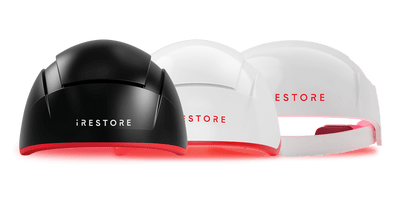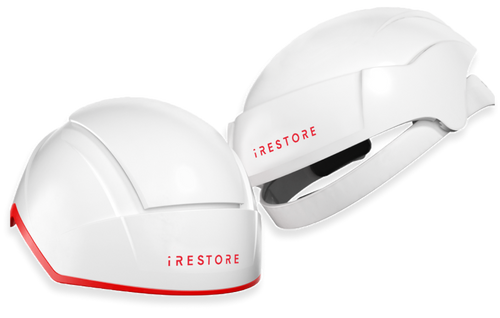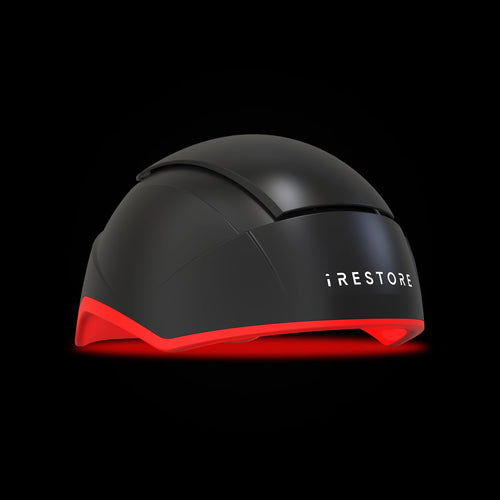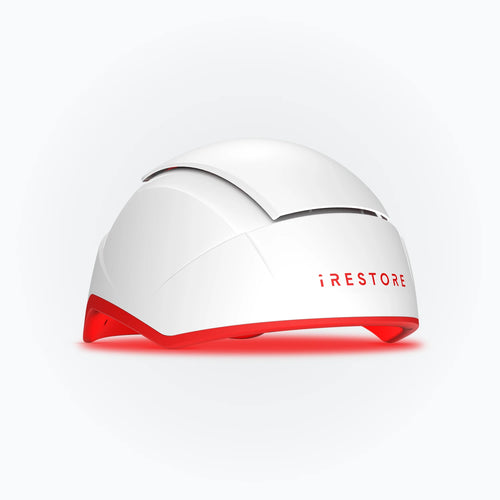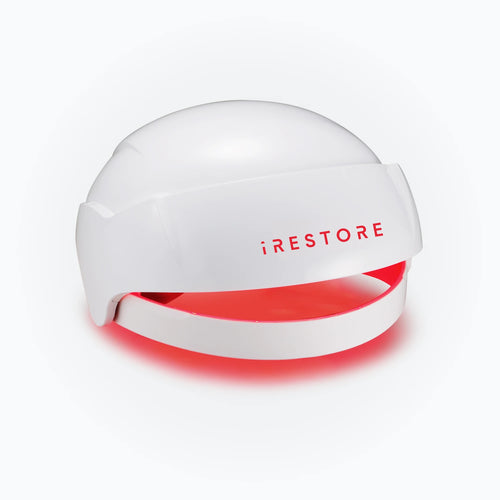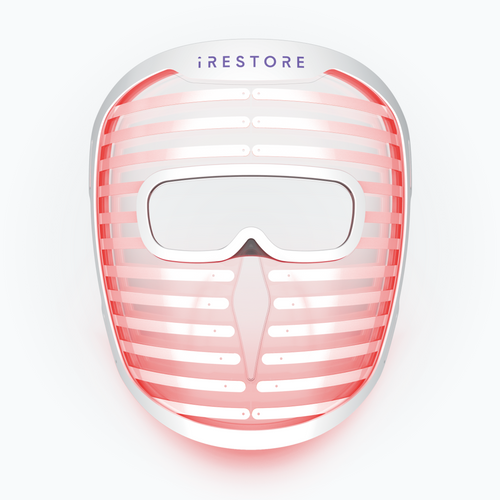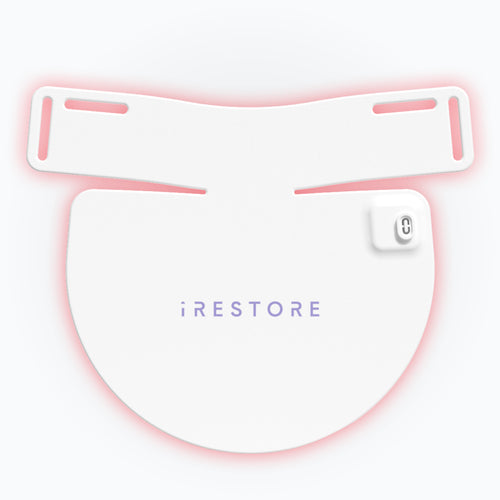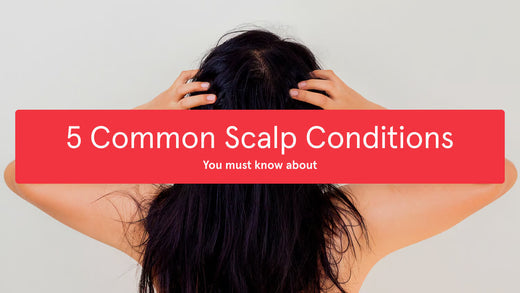
5 Most Common Scalp Conditions You Must Know About

You know your hair more than anybody, right? I mean, the only person that might even come close to knowing those locks the way you do is a trusted hairstylist or barber.
And you likely have a hair routine to keep it looking its best. Well, that’s because it’s one of the most noticeable attributes not only to you but to others as well.
So, when you start experiencing issues with your hair, you’re going to notice. Most hair changes you’ll see stem from problems with your scalp, and your scalp can be affected by a variety of skin conditions.
Today, you’ll learn about five of the most common scalp conditions, along with symptoms you can look for and potential treatment options to keep your hair and scalp as strong as possible.
Oh, and keep in mind that many scalp conditions share similar symptoms, so it’s essential to consult a doctor to get the proper diagnosis.
1. Androgenetic Alopecia
Androgenetic alopecia is a common hair loss condition that affects both men and women and is seen in 30% to 50% of men by the age of 50.
The condition is male-pattern baldness for men because the hair loss happens in a pattern above the temples and forms an M shape at the scalp. It is caused by a combo of genetic factors and the effects of DHT, a male sex hormone.
For women, androgenetic alopecia thinning hair over the entire head but is not as noticeable
at the hairline as with men. Women with this condition likely won’t become bald but will notice that their hair is thinner.
Some will recommend minoxidil and finasteride; however, it’s essential to know everything about these drugs before trying them. Please take a look at our blog here to learn more.
At iRESTORE, we would first suggest you explore our FDA-cleared and proven red light therapy Elite, Professional and Essential devices for you to grow thicker, fuller hair. Our devices are drug-free and help generate healthy skin cells that result in an ideal environment for hair growth without any side effects.
Also, our Hair Growth Formula is made of a scientific blend of ingredients to improve hair density and combat hair loss. The formula includes a DHT blocker blend to help hair growth, which will significantly help those with male pattern baldness.
2. Psoriasis
Psoriasis is an autoimmune disorder that is often hereditary. It is an inflammatory condition that usually results in symptoms going away and reappearing over time.
Psoriasis occurs when cells grow too fast, resulting in thick, white or red plaques covered with silver-gray scales. Most people experiencing psoriasis will see dandruff-like flakes and will notice itchy scalp lesions.
Psoriasis doesn’t particularly lead to hair loss, but you may experience thinning if you scratch or pick at the affected areas. So, fight the temptation!
Scalp psoriasis is quite challenging to treat, and although there is no cure for it, it’s suggested to use medicated shampoos and topical solutions.
At iRESTORE, our Thickening Duo is made of a refreshing formula that revitalizes hair follicles, gently moisturizes the dry scalp, and repairs damaged hair. Our shampoo and conditioner are made with natural ingredients like keratin, biotin, castor oil, amino acids, and antioxidants to provide the nutrients your hair needs to restore its health.
And our Growth Activator Serum is a gluten-free, non-GMO topical treatment applied directly on the scalp engineered for thinning hair.
3. Dermatitis (Seborrheic and Contact)
A seborrheic dermatitis is a form of eczema that can develop in parts of your body that produce a lot of oil, particularly in your scalp and skin.
Common symptoms include the appearance of a greasy, flaky rash on the scalp and certain parts of your face and ears. In many cases, it will cause itchiness, and your skin may turn a white or yellow color resulting in dandruff.
Seborrheic dermatitis can often be treated using anti-dandruff shampoos, but you may need to speak with a dermatologist for prescribed medication for more severe cases. Contact Dermatitis is also a form of eczema that can occur when your skin encounters an irritating substance.
With contact dermatitis, you’ll likely see a rash that may result in an itchy or burning sensation or even a blister, and irritants often cause it in ingredients such as personal care products.
Contact dermatitis usually gets better on its own, but it can be treated with oral or topical treatments if it doesn’t. For oral nutrients, we recommend our tasty Biotin Vitamin Gummies made with all-natural ingredients designed to nourish your hair, skin, and nails. These can be taken daily and consistently give your hair and skin the vitamins and fatty acids they need.

4. Telogen Effluvium
Telogen effluvium is a temporary hair loss condition that occurs after a triggering event. It typically results in hair shedding across your entire scalp.
This condition can occur due to illness, stress, infections, nutritional deficiencies, and certain medications. It is regular for this type of hair loss to occur months after the event that ultimately triggered it.

5. Folliculitis
Folliculitis is a condition that occurs when there’s inflammation of hair follicles on any part of the body, including the scalp. It is also commonly seen in the beard, back, arms, legs, and buttocks.
This condition may be caused by bacteria, fungus, or parasites and could often develop from bacteria in hot tubs and swimming pools. And habits like wearing tight clothes, having skin rub against itself, and touching your skin can increase your chances of having folliculitis.
Common symptoms are red, pain, burning, and itchy areas at or near one or more hair strands. It has the appearance of red pimples with a strand of hair in the center that may have pus inside.
For mild cases of folliculitis, warm compresses will help alleviate itching and remove pus, and you’ll usually see results in a couple of weeks. But for more severe cases, oral antibiotics or antifungal medication will likely be needed.
And one final common scalp condition is alopecia areata. For that, check out everything you need to know in our most recent blog post here.

